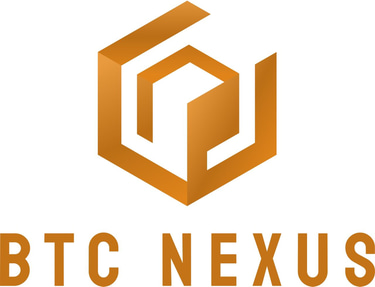Cryptocurrency 101
The term "cryptocurrency" is defined by Merriam Webster dictronary as "any form of currency that only exists digitally, that usually has no central issuing or regulating authority but instead uses a decentralized system to record transactions and manage the issuance of new units, and that relies on cryptography to prevent counterfeiting and fraudulent transactions."
Let's stop there for a moment: Before cryptocurrency, there was Bitcoin, and before that were several failed attempts to create Bitcoin such as eCash, B-money, Bit Gold, and Hashcash. Each had features of Bitcoin, all lacked every necessary property to ensure lasting adoption, global utility, and lasting relevancy.
Bitcoin is more than just a digital token flying across cyberspace, blowing up news outlets, and making payments for illicit activities. It represents freedom and individual sovereignty over your time and effort. Just as gold has transferred countless value over millenia to its holders, Bitcoin marks a new chapter in human finance by asking you a simple question: What is money? Read more to find out...
The "why" of BTC Nexus
Have you ever wondered why prices on everyday things continue to go up? If you think about it, the physcial aspect or use of the item you are buying is the same—think eggs at your local grocery store—but the amount of money required to purchase it has gone up, leaving you with less for other essential goods. This is frustrating because your income is not increasing to keep up with these changes. Financial "experts" will say it's part of "supply and demand economics," which is partially true when producers cannot keep up with demand due to an event like the bird flu outbreak.
What experts omit is inflation, where the supply of US dollars in the world increases due to lending future dollars—units of currency that do not exist yet—into the present. If an individual does this, it is called counterfeiting, punishable by fines and imprisonment. For banks and the government, this same act is called "quantative easing," or QE, where a central bank—think United States Federal Reserve, or "the FED"—buys assets to increase the money supply, thereby lowering federal interest rates to help the economy.
While lowering interest rates seems like winning strategy—think of this as your mortgage interest rate going down—the flip side is that all the money in your bank savings account just lost purchasing power because there are now more units of currency available to compete for purchasing power against your savings.
How does Bitcoin fix this? Just like your home value generally increases year-over-year barring any recessions, Bitcoin, like your home, has a restricted supply. For example, you cannot double the number of homes in existance since building one requires human effort, materials, and time, all which create a cost of production. The same can be said of gold and Bitcoin, which require digging up earth and expending computing power and electricty, respectively.
BTC Nexus is designed for you learn about how money works, how to join the Bitcoin network, and how to save in assets that cannot be debased by goverment economic policy. It's about taking control of your money, securing your financial freedom, and getting off the inflation treadmill to focus more time on living your life the way you want to.
About me


Hi there! My name is Phil Rio, and I am certified public accountant (CPA) who has a strong passion for Bitcoin, financial freedom, and helping others safely navigate the 21st century finanical revolution of digitial assets.
I started my Bitcoin journey on Feb 20th, 2020, when the world experienced the Covid-19 stock market crash, which completely halted daytime trading. I asked myself: "Why do these crashes occur, and how can I protect myself"? I started researching what makes up a hard asset, which led me to study gold, real-estate, and Bitcoin.
I also learned the hard way through Celsius Network that there are many bad actors and traps in the world of cryptocurrency. There have been countless ponzi schemes, fraud, and mishandling of assets. Sam Bankman-Fried's FTX, Alex Mashinsky's Celsius Network, and Do Kwon's Terra Labs are just a few of countless pitfalls you can run into when trying to participate in this space.
My hope is that this site, along with my 1:1 sessions, learning materials, and explanations of financial concepts, you will acquire the tools necessary to participate in this exciting space, while reducing the chance of falling victim to the countless "meme" and "get rich quick" schemes that litter the digital asset industry.
